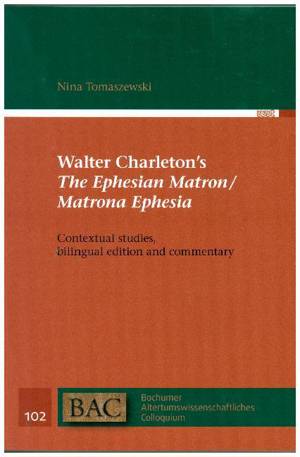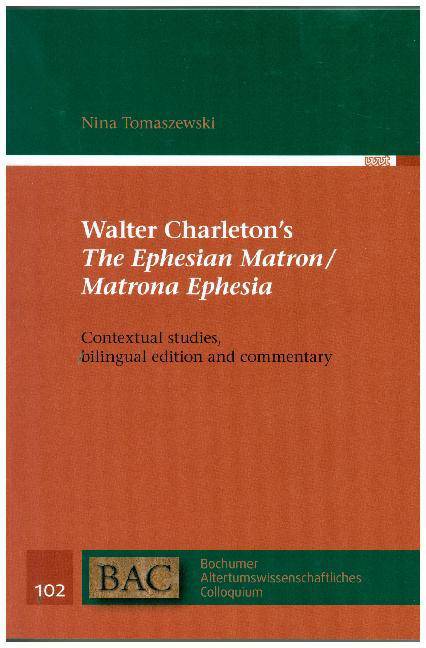
- Afhalen na 1 uur in een winkel met voorraad
- Gratis thuislevering in België vanaf € 30
- Ruim aanbod met 7 miljoen producten
- Afhalen na 1 uur in een winkel met voorraad
- Gratis thuislevering in België vanaf € 30
- Ruim aanbod met 7 miljoen producten
Zoeken
Walter Charleton's The Ephesian Matron / Matrona Ephesia
Contextual studies, bilingual edition and commentary
Nina Tomaszewski
€ 64,45
+ 128 punten
Omschrijving
Retold by Walter Charleton (1620-1707) in The Ephesian Matron, the story of the widow of Ephesus - a well-travelled lady by that time - became the starting point for digressions on the subject of love. In an intriguing mix of fiction and philosophy, Charleton used the ancient story to comment on a contemporary social phenomenon (the fashionable ideal of Platonic love) and contributed to the seventeenth-century debate about the passions.
This book attempts to shed light on the at times ambiguous text by studying its various (philosophical, literary, historical and philological) contexts. Particularly the Latin translation (Matrona Ephesia, 1665) is analysed as a so-far entirely neglected context that may e.g. offer insights into the reception of the story but that is also philologically interesting in its own right.
Additionally, this book offers the first bilingual edition of Charleton's The Ephesian Matron and its Latin translation Matrona Ephesia, as well as the first comprehensive commentary.
This book attempts to shed light on the at times ambiguous text by studying its various (philosophical, literary, historical and philological) contexts. Particularly the Latin translation (Matrona Ephesia, 1665) is analysed as a so-far entirely neglected context that may e.g. offer insights into the reception of the story but that is also philologically interesting in its own right.
Additionally, this book offers the first bilingual edition of Charleton's The Ephesian Matron and its Latin translation Matrona Ephesia, as well as the first comprehensive commentary.
Specificaties
Betrokkenen
- Auteur(s):
- Uitgeverij:
Inhoud
- Aantal bladzijden:
- 648
- Taal:
- Latijn, Engels
- Reeks:
- Reeksnummer:
- nr. 102
Eigenschappen
- Productcode (EAN):
- 9783868217483
- Uitvoering:
- Paperback
- Afmetingen:
- 156 mm x 226 mm
- Gewicht:
- 1167 g

Alleen bij Standaard Boekhandel
+ 128 punten op je klantenkaart van Standaard Boekhandel
Beoordelingen
We publiceren alleen reviews die voldoen aan de voorwaarden voor reviews. Bekijk onze voorwaarden voor reviews.








